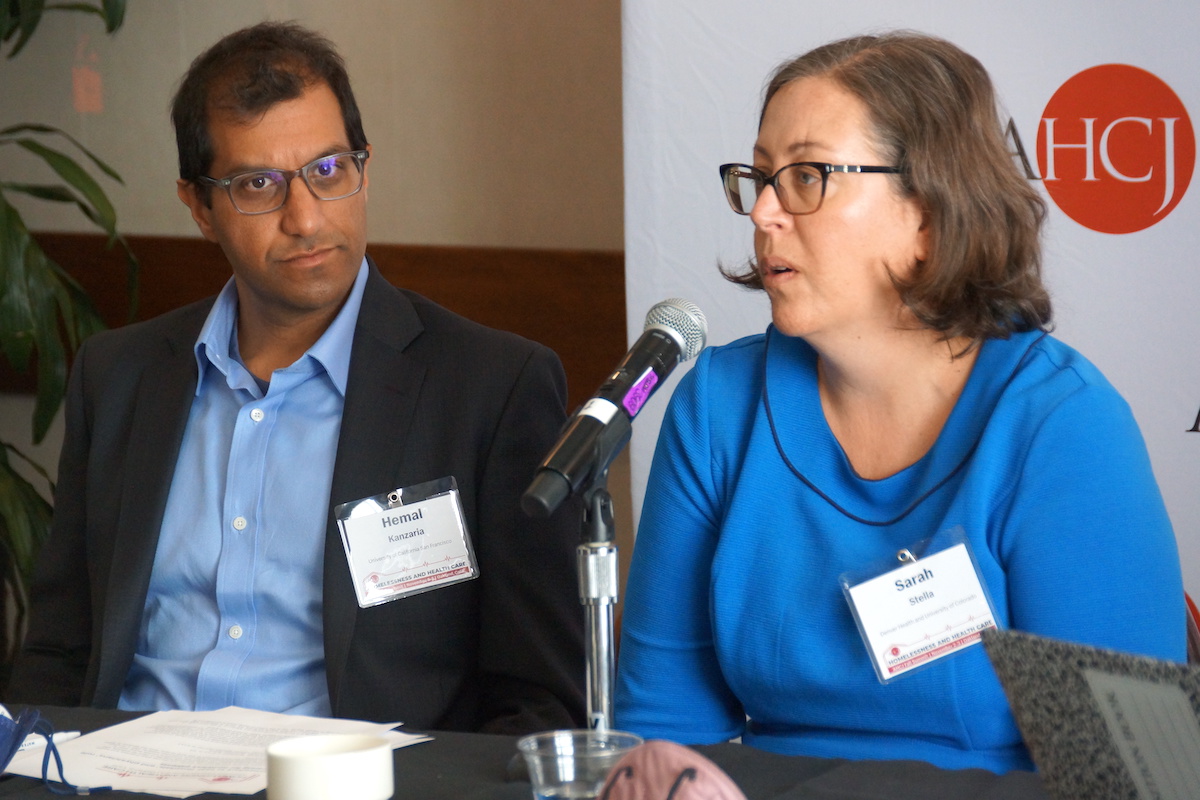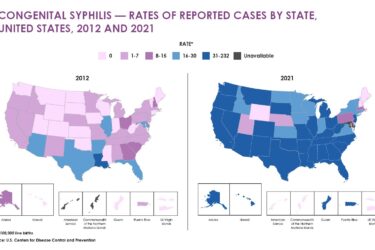Housing is a health care issue, impacting every stage of care. Whether a patient has a home may influence how sick they are, their ability to heal after treatment and even whether they seek any medical care in the first place.
Unhoused patients are often farther along in their illnesses than the average patient since they may delay treatment because of previous traumatic experiences with hospitals and neglect from health care professionals. And the problem is growing.
“Between 20-40% of my in-patient team, at any one time, is experiencing some form of homelessness or housing insecurity. It’s one of the most dire needs our patients have,” said Sarah Stella, M.D., during AHCJ’s November “Homelessness and Health Care” summit in Oakland, Calif.
Dr. Stella, an associate professor at the University of Colorado School of Medicine, was among a panel of doctors from across the country who spoke during a session titled “Somewhere to heal: Hospitals’ and physicians’ role in caring for homeless patients.” Other speakers included University of Miami Assistant Professor of Medicine Armen Henderson, M.D., M.B.A., and Hemal Kanzaria, M.D., M.Sc., a professor of emergency medicine at the University of California, San Francisco. Isabella Cueto, a chronic disease reporter for STAT, moderated the session.
Dr. Stella stated that many of her patients feel unwelcome in the hospital due to trauma from past negative experiences. Aftercare also becomes a bigger problem when making plans for discharge because of the lack of resources and help that unhoused patients have.
On the panel, the doctors discussed what they can do as physicians to better care for those who are unhoused and how to help unhoused patients find new ways to prioritize their health, while recognizing their housing situation is also what detracts from their well-being.
Some panelists said that doctors must go beyond their role as health care providers in advocating for their unhoused patients.
Dr. Hemal Kanzaria explained that health care needs to transform its current model to assess the medical and non-medical needs of patients. If a patient says their needs at the moment are housing or food, then there should be a way for the system to prioritize those things because these insecurities are foundational to someone’s health. But that would require structural change. “Health care has to be a stakeholder at the table and has to be a partner in this work,” Dr. Kanzaria stated.
Audience members asked what more can hospitals — whose owners have access to millions of dollars — do to improve care for the unhoused.
“It doesn’t align,” said Dr. Armen Henderson, adding that most of the corporations that own these hospitals only care about their bottom line and don’t want to give more to unhoused patients. But if these hospitals want to care for people, then they need to invest in the social programs that will help these patients survive.
The panelists acknowledged that more needs to be done on all ends for these unhoused, vulnerable patients, but they vowed to continue to advocate for them so that they receive the quality of health care they deserve.
Magaly Muñoz is a fellow with UC Berkeley’s California Local News Fellowship and is positioned as a staff writer for the Oakland Post.







